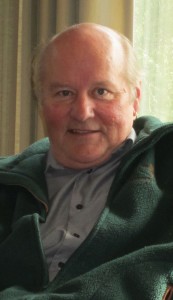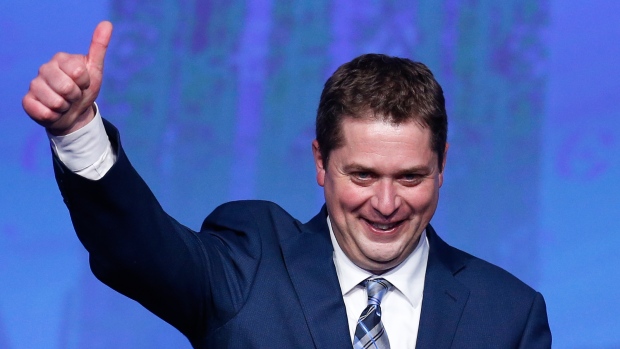May 29th, 2017
BURLINGTON,ON
It never fails. Leave the country for a week and…
The Conservative Party of Canada held its leadership vote and, as I had suggested could happen, it delivered an upset victory. Andrew Sheer, a 30 something career politician from Saskatchewan and former House speaker, is the new leader of Canada’s grand old party. Using a ranked ballot, also referred to as preferential or single transferable, Sheer snuck past front runner Maxime Bernier in the last elimination round, and snatched the prize by less than a single percentage point.
One could not be faulted for seeing Sheer as a mini-me, a younger Stephen Harper. After all Sheer, like Harper, is a ‘social conservative’, a label some consider synonymous with right wing or reactionary views. One can’t help but get the feeling that he wants to turn the clock back to the time Mr. Harper ruled the roost – and that the recent period of Liberal government is just an inconvenient stop on the highway to a more conservative Canada.
And like Harper, the new leader is anti-choice when it comes to a woman’s body. Though Mr. Harper was careful to avoid re-opening the legalization debate, which former Conservative PM Kim Campbell has so skillfully brought to a conclusion. That Sheer has played the abortion card in this contest should be a red flag to all potential voters who value freedom of choice.
Other than that we will have to wait and see how progressive his leadership of the former Progressive Conservative party will be – or not. And that may determine the party’s chances of sliding in between the two parties on the left and centre, and forming government come 2019. Sheer, as a novice leader, will be facing a still-popular Justin Trudeau, who will argue for the opportunity to complete what he had begun in his first term.
And the New Democrats will also be showcasing a new leader, which may lead to more of a three way race than in 2015.
Speaking of three way races, there is B.C.’s recent election. Typically a two party province, there hasn’t been a minority government there since the 1950’s,. But that luxury has come to an end after the Green Party elected three members to the legislative assembly. And the B.C. Liberal Party, arguably more conservative than its name, had barely eked out a two seat lead over the opposition NDP.

B.C. Liberal Leader Christy Clark is one seat shy of being able to form a government. Photo credit – THE CANADIAN PRESS/ CHAD
So the Libs are one seat short of a majority. And while they could claim the right to form government, given their first place finish, it is unlikely they’d survive the first non-confidence vote. The Greens are tired of sitting in the wings and are hungry for power. So they are looking to bed down with either one of the other parties, a coalition or contract for a one-term-stand as opposed to a marriage of convenience.
Regardless who they sleep with, the result will mean a fresh look at resource projects, like the recently approved Kinder Morgan oil pipeline. And in a province which has built its economy in large part upon its rich endowment of natural resources, there will be fireworks – and possibly new tensions with the federal government. It is expected that a deal will be negotiated by mid-week, so we’ll soon see how this plays out.
And the real sticking point in these coalition discussions is the matter of electoral reform. B.C. in recent years has twice conducted a referendum for electoral change. And both of these – the one for proportional representation and the other for voting by a single transferable (ranked) ballot – have failed. So the Greens are saying ‘to-hell’ with referendum – let’s just do it. But the NDP and Libs are reluctant to wear the blame for defying the results of those previous polls.
The Greens want to introduce proportional representation, a system which does offer more effective representation and is better designed to accommodate minority situations and political coalitions. And that would be a life-line for the longer term survival of their party.
Though had the previous Liberals been able to convince the public on the merits of a preferential ballot when they were in power, similar to the approach the federal Conservatives used last weekend, they might have been returned to office with a majority and the Green Party left out in the cold. There is a lesson in this for our federal leaders.
 Ray Rivers writes weekly on both federal and provincial politics, applying his more than 25 years as a federal bureaucrat to his thinking. Rivers was a candidate for provincial office in Burlington in 1995. He was the founder of the Burlington citizen committee on sustainability at a time when climate warming was a hotly debated subject. Tweet @rayzrivers
Ray Rivers writes weekly on both federal and provincial politics, applying his more than 25 years as a federal bureaucrat to his thinking. Rivers was a candidate for provincial office in Burlington in 1995. He was the founder of the Burlington citizen committee on sustainability at a time when climate warming was a hotly debated subject. Tweet @rayzrivers
Background links:
CPC Leadership – More CPC – Even More CPC – B.C Election – Minority Consequences –

















Susan – thanks for your comment – you may want to check out Neil Macdonald’s take on Sheer ….
https://www.cbc.ca/news/opinion/andrew-scheer-leadership-1.4136808
Thanks again
Susan – thanks for your comment – you may want to check out Neil Macdonald’s take on Sheer in the G&M….
https://www.cbc.ca/news/opinion/andrew-scheer-leadership-1.4136808
Thanks again
Ray
Andrew Scheer is a smart, savvy politician and Liberals who underestimate him will do so to their eventual regret. Characterizing him as a Harper “mini me” is not only disingenuous but a gross over-simplification. Scheer was Speaker of the House for four years and knows how to engage, communicate and connect with people who hold differing viewpoints than him. He won the leadership by connecting with supporters of other candidates like Trost, Lemieux and O’Toole who have different perspectives.
As for the minority government in B.C. it won’t last eighteen months. The Greens can prattle on all they like about proportional representation but at the end of the day people want and need jobs. It will be economic issues that determine the life of the B.C. provincial government. The problem with the Green Party is that at the end of the day they are still a “one trick pony”. To become a truly effective force in Canadian politics they need to broaden their appeal from environmental issues and tackle head on issues of taxation, job creation and budget deficits. In a province as resource dependent as British Columbia that will be a significant challenge.
Please explain how Scheer “played the abortion card in this contest”.